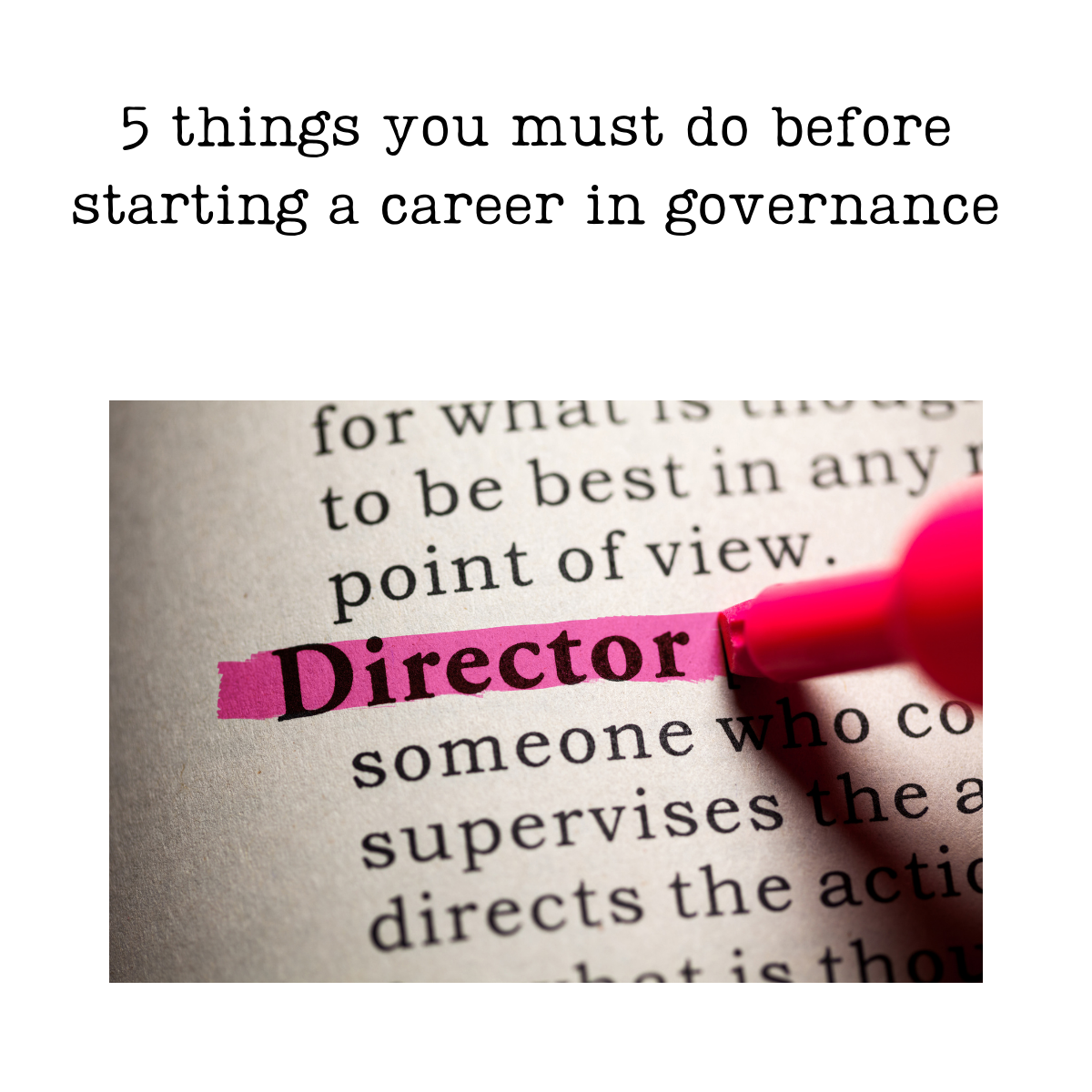
5 things you must do before starting a career in governance
I’ve always believed that becoming a director is a career step that rewards on many levels while it challenges one.
A career in governance is a meaningful step, that allows you to influence organisations for the better and ensure they operate with integrity and accountability. However, from my personal experience, the path requires preparation, determination, and a desire to see beyond the surface of decisions to their broader impact. Here are five practical steps I’d like to offer to guide you on this rewarding journey.
1. Build a Strong Educational Foundation
Every good career starts with knowledge. Focus your studies on areas like law, business, or public administration to gain understanding of organisations and their operating frameworks. If you’re serious about governance, consider additional qualifications. The Governance Institute of Australia and our own The Agile Director offer excellent courses tailored to governance, purpose, risk management, and compliance. These will give you an edge and enhance your expertise as you step into the field.
2. Gain Experience That Matters
Experience is a great teacher, and governance is no different. Many professionals enter governance roles having worked in finance, legal departments, or human resources. These areas give you a front-row view of the challenges organisations face and the solutions they need. Use that experience to develop practical insights and a problem-solving mindset.
3. Connect with the Right People
Finding mentors and peers who share your aspirations is key. Join professional organisations like the Australian Institute of Company Directors (AICD) to meet others in the field, learn from their insights, and access highly regarded certifications. Relationships matter in governance, and these connections often open doors to new opportunities and broader knowledge.
4. Focus on Ethics and Sound Judgement
Good governance isn’t just about following rules; it’s about doing what’s right, even when the answers aren’t obvious. Develop your ability to think critically and ethically. Stay informed about emerging risks and shifting regulations. Remember, at the heart of governance lies trust - requiring decisions that serve not just the organisation but also its people and the wider community.
5. Learn from Governance in Action
One of the best ways to grow is to study real-world examples. Particularly those that have failed. As I have said before, great boards fail, not necessarily because of the pedigree of people at the table. The Royal Commissions offer great examples, and recommendations that are self-evident, from Financial Services to Aged Care.
Building a career in governance takes time and effort, but it also brings the chance to truly make a difference in shaping organisations for the better.
And remember, a career in governance does not necessitate you being a director. You may choose advisory, consulting or committee membership roles.